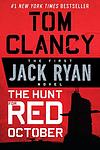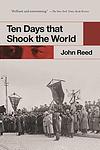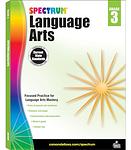The Greatest American "Russia" Books of All Time
Click to learn how this list is calculated.
This list represents a comprehensive and trusted collection of the greatest books. Developed through a specialized algorithm, it brings together 300 'best of' book lists to form a definitive guide to the world's most acclaimed books. For those interested in how these books are chosen, additional details can be found on the rankings page.
Genres
The category of "Russia" in books typically encompasses literature that explores the history, culture, politics, and society of Russia. This can include works of fiction, non-fiction, memoirs, and biographies that delve into the complexities of Russian life, from the tsars and the Soviet era to contemporary Russia. These books may also examine the country's relationship with other nations, its artistic and literary traditions, and its impact on global events. Overall, the category of "Russia" offers a rich and diverse range of books that provide insight into one of the world's most fascinating and complex nations.
Countries
Date Range
Reading Statistics
Click the button below to see how many of these books you've read!
Download
If you're interested in downloading this list as a CSV file for use in a spreadsheet application, you can easily do so by clicking the button below. Please note that to ensure a manageable file size and faster download, the CSV will include details for only the first 500 books.
Download-
1. Speak, Memory by Vladimir Nabokov
"Speak, Memory" is an autobiographical memoir that explores the author's life from his birth in 1899 to his emigration to the United States in 1940. The narrative details his privileged childhood in Russia, his experiences during the Russian Revolution, his time in Europe as an émigré, and his career as a writer and scholar. The book is noted for its intricate descriptions, its exploration of the nature of memory, and its intricate linguistic play.
-
2. The Hunt for Red October by Tom Clancy
This novel details the story of a high-ranking Russian submarine captain who aims to defect to the United States without sparking a war between the two nations. The American government, upon receiving information about the captain's intentions, sends its best analyst to aid in the successful defection of the captain and his crew. The novel is a thrilling tale of espionage, filled with suspense and detailed technical descriptions of military technology and procedure.
-
3. The Great Railway Bazaar by Paul Theroux
"The Great Railway Bazaar" is a travelogue in which the author embarks on a four-month journey by train from London through Europe, the Middle East, the Indian subcontinent, Southeast Asia, and Siberia, and then back to Europe. The book is a vivid and insightful account of the people, cultures, landscapes, and experiences encountered during the journey, painting a unique picture of the world as seen from the perspective of a train window. The author's sharp observations and engaging storytelling make this journey as much an inner exploration as a geographical one.
-
4. Ten Days That Shook the World by John Reed
This book provides a firsthand account of the Russian Revolution in 1917, specifically focusing on the ten days during which the Bolsheviks seized power. The author, an American journalist, presents a detailed chronicle of the events, people, and emotions during this tumultuous period. His narrative is filled with vivid descriptions and passionate portrayals of the revolutionaries, offering an intimate look into this significant historical event.
-
5. Gorky Park by Martin Cruz Smith
In the heart of Moscow, three corpses found in Gorky Park lead a dedicated Soviet police investigator on a complex and dangerous trail that entangles him in the web of the KGB and the FBI. As he delves deeper into the case, he uncovers a chilling conspiracy and faces moral dilemmas that challenge his very principles and integrity. The investigation becomes a personal quest for truth that takes him far beyond the park's snowy borders, testing his resolve and putting his life at risk in the shadowy intersections of international espionage and political intrigue.
-
6. To the Finland Station by Edmund Wilson
This book is a historical narrative that explores the evolution of revolutionary thought, from the French Revolution through Karl Marx's theories to the Russian Revolution. It focuses on the lives and ideas of key figures in radical political thought, including Marx, Engels, Lenin, and Trotsky. The book culminates in the pivotal moment when Lenin arrives at the Finland Station in Petrograd in 1917, marking the start of the Bolshevik Revolution.
-
7. All the Light We Cannot See by Anthony Doerr
Set during the turmoil of World War II, the novel follows the intersecting lives of a blind French girl and a German boy. The girl, living in occupied France, seeks solace in the world of books and the imagination, while the boy, a member of Hitler Youth, is a radio operator for the German forces. Their paths cross in the walled city of Saint-Malo, with the narrative exploring themes of survival, morality, and the human spirit.
-
8. Living My Life by Emma Goldman
"Living My Life" is an autobiography that chronicles the life of a prominent and controversial anarchist and feminist figure of the early 20th century. The memoir details her passionate involvement in the struggle for workers' rights, free speech, and social reform. It also delves into her personal experiences, including her emigration from Russia to the United States, her tumultuous relationships, and her eventual deportation. Throughout the narrative, the author reflects on the philosophical and political beliefs that drove her activism, offering a candid and intimate look at the challenges she faced in her pursuit of social justice and her unwavering commitment to her ideals.
-
9. Lenin's Tomb: The Last Days of the Soviet Empire by David Remnick
This book provides an in-depth account of the final days of the Soviet Union, focusing on the period from 1989 to 1991. It explores the political, economic, and social factors that led to the collapse of the Soviet empire, including the role of key figures such as Mikhail Gorbachev, Boris Yeltsin, and others. The author, a journalist who lived in Moscow during this time, combines historical analysis with personal observations and interviews, offering a unique perspective on this significant period in world history.
-
10. Conversations With Igor Stravinsky by Robert Craft
This book presents a series of intimate and revealing conversations between a renowned composer of the 20th century and his close associate, a conductor and musicologist. Through these dialogues, readers gain insights into the composer's thoughts on music, art, and life, as well as his personal experiences and the development of his unique compositional style. The discussions delve into various aspects of the composer's works, his collaborations with other prominent artists, and his reflections on contemporary culture and fellow musicians. The book offers a rare glimpse into the mind of one of the most influential figures in modern classical music, providing a deeper understanding of his creative process and artistic philosophy.
-
11. The Russian Revolution by Richard Pipes
"The Russian Revolution" offers a comprehensive and detailed account of the events leading up to, during, and following the Russian Revolution of 1917. The author presents a thorough exploration of the socio-political climate of the time, the key figures involved, and the profound impact the revolution had on Russia and the wider world. The book also delves into the ideologies that fueled the revolution, the subsequent rise of the Soviet Union, and the enduring influence of these events on global history.
-
12. A Gentleman in Moscow by Amor Towles
The novel follows the life of Count Alexander Rostov, an aristocrat who is sentenced to house arrest in the Metropol, a grand hotel across the street from the Kremlin, by a Bolshevik tribunal during the early years of Soviet Russia. Despite the vast historical changes occurring outside the hotel's walls, the Count lives a life of intellectual exploration, emotional discovery, and surprising personal growth within the confines of the luxurious establishment. Over the decades, his reduced circumstances provide a lens through which to observe the tumultuous events of mid-20th century Russia, as he befriends staff and guests, raises a spirited young girl who comes into his care, and adapts to his new reality with grace and wit.
-
13. World War Z by Max Brooks
The book is an apocalyptic horror novel presented as a collection of individual accounts in the aftermath of a global pandemic that leads to a catastrophic zombie outbreak. Through interviews with survivors from various countries and walks of life, the narrative unfolds the social, political, cultural, and environmental implications of the zombie crisis, known as World War Z. The personal stories explore the widespread panic, the collapse and resurgence of governments, military strategies employed to combat the undead, and the human resilience in the face of a decimated world. The novel serves as a critique of societal responses to disasters and a commentary on the human condition.
-
14. War and Remembrance by Herman Wouk
The novel is a historical saga that continues the story of an American family during World War II. It follows the naval career of one of the family members, his experiences in the Pacific, and his struggles with his marriage. Simultaneously, the narrative also focuses on the harrowing experiences of his Jewish relatives in Europe, who are caught in the horrors of the Holocaust. The novel provides a detailed account of the war on multiple fronts, both personal and political, and explores themes of love, loss, and the human capacity for survival.
-
15. Fifty Russian Winters by Margaret Wettlin
"Fifty Russian Winters" is a memoir that offers a personal and insightful account of life in the Soviet Union over a span of five decades. The author, an American woman who moved to Russia in the 1930s, shares her unique experiences and observations of the dramatic changes that occurred in the country, from the Stalinist purges to the hardships of World War II and the eventual thaw of the Cold War. Her narrative provides a rare perspective on everyday life, culture, and the political climate of the USSR, as she navigates her role as an educator, a witness to history, and a foreigner in a land that becomes her home.
-
16. The Rest is Noise by Alex Ross
"The Rest is Noise" is a comprehensive exploration of 20th-century classical music, examining the social, political, and cultural contexts that influenced its development. It provides a detailed study of the works of renowned composers, their inspirations, and their impact on the musical world. The book also explores the ways in which classical music has intersected with major events and movements of the 20th century, including two World Wars, the Cold War, and the rise of totalitarian regimes.
-
17. Against the Day by Thomas Pynchon
The novel is a sprawling epic that spans the period from the 1893 World's Fair to the years following World War I. It follows the stories of several characters including the anarchist Traverse family, a group of balloonists, a detective, and a mathematician. The book explores themes of anarchism, capitalism, and technology, and incorporates elements of science fiction, adventure, and historical fiction. It is noted for its complex structure and dense, multifaceted narrative.
-
18. The Charm School By De Mille, Nelson (1989) Mass Market Paperback by Unknown
In this gripping Cold War thriller, an American tourist stumbles upon a secret Soviet training facility known as "The Charm School," where KGB agents are taught to mimic American culture and behavior to infiltrate the United States. When the tourist mysteriously disappears, a U.S. Air Force officer stationed at the U.S. Embassy in Moscow and a female American consulate worker begin to investigate. Their search leads them into a dangerous confrontation with the KGB and a desperate race against time to expose the truth about the facility before more lives are lost and the potential for Soviet spies within American borders grows.
-
19. The Prize: The Epic Quest for Oil, Money, and Power by Daniel Yergin
"The Prize: The Epic Quest for Oil, Money, and Power" is a comprehensive history of the global oil industry, tracing its development from the drilling of the first well in Pennsylvania to the oil crisis of the 1970s and its aftermath. The book examines the key players, political conflicts, and technological advancements that have shaped the industry, and explores the profound impact of oil on the global economy and geopolitics. It also discusses the environmental and social challenges associated with oil production and consumption.
-
20. The True Believer by Eric Hoffer
"The True Believer" is a philosophical analysis of the nature of mass movements and the people who constitute them. The book argues that regardless of the specific cause, whether it be religious, political, or social, all mass movements are interchangeable and their followers are essentially the same. The author suggests that the driving force behind these movements is not the ideology itself, but rather the personal dissatisfaction and frustration of the individuals involved. The book also explores the lifecycle of mass movements, from their creation to their eventual dissolution.
-
21. To A Distant Island by James McConkey
In "To A Distant Island," the narrative follows a protagonist who embarks on a journey retracing the steps of a 19th-century Russian writer's self-imposed exile to Sakhalin Island, situated off the eastern coast of Russia. The protagonist, seeking to understand the writer's motivations and experiences, delves into a reflective exploration that intertwines the historical account with personal introspection. As he travels through Japan and Russia towards the distant and desolate island, the book becomes a meditation on freedom, punishment, and the human condition, all while providing a vivid portrayal of the lands and peoples encountered along the way.
-
22. Charm School by Nelson DeMille
In this gripping espionage thriller, an American naval officer stumbles upon a covert Soviet training facility known as "Charm School," where KGB agents are being schooled in American culture and language to infiltrate the United States as sleeper agents. As he delves deeper into the mystery, he teams up with a beautiful and determined Soviet dissident, and together they face the treacherous task of exposing the operation. Their mission becomes increasingly dangerous as they are pursued by the relentless and brutal KGB, leading to a high-stakes game of cat and mouse that could have far-reaching implications for the Cold War power balance.
-
23. Catherine The Great: Portrait Of A Woman by Robert K. Massie
This biography provides an in-depth look at the life of the longest-reigning female leader of Russia, tracing her journey from a minor German princess to the powerful Empress of Russia. It delves into her political achievements, her efforts to modernize Russia, and her numerous romantic liaisons, all set against the backdrop of the opulence and intrigue of the 18th-century Russian court. The book paints a vivid portrait of a complex woman who wielded her intelligence and charisma to navigate the treacherous waters of court politics, expand her empire, and become one of the most influential figures in European history.
-
24. Europe Central by William T. Vollmann
The novel explores the moral decisions made by individuals during the most challenging circumstances, specifically focusing on the Eastern Front during World War II. It presents a series of interconnected stories revolving around key historical figures and events, such as the siege of Leningrad, the Soviet invasion of Germany, and the lives of famous composers and artists during this period. The book delves into the complexities of love, betrayal, sacrifice, and survival in the face of totalitarian regimes and war, highlighting the individual's struggle against the overwhelming forces of history.
-
25. A Part Of Speech by Joseph Brodsky
This book is a collection of poetry that delves into the themes of exile, memory, and the complexities of language and cultural identity. The poet, who was exiled from his homeland, reflects on his experiences with a sense of loss and nostalgia, while also exploring the broader human condition. The work is characterized by its intellectual depth, lyrical beauty, and the use of rich imagery and metaphor. Through a tapestry of personal and historical narratives, the poems in this collection offer a poignant commentary on the nature of displacement and the search for belonging in a fragmented world.
Reading Statistics
Click the button below to see how many of these books you've read!
Download
If you're interested in downloading this list as a CSV file for use in a spreadsheet application, you can easily do so by clicking the button below. Please note that to ensure a manageable file size and faster download, the CSV will include details for only the first 500 books.
Download






















